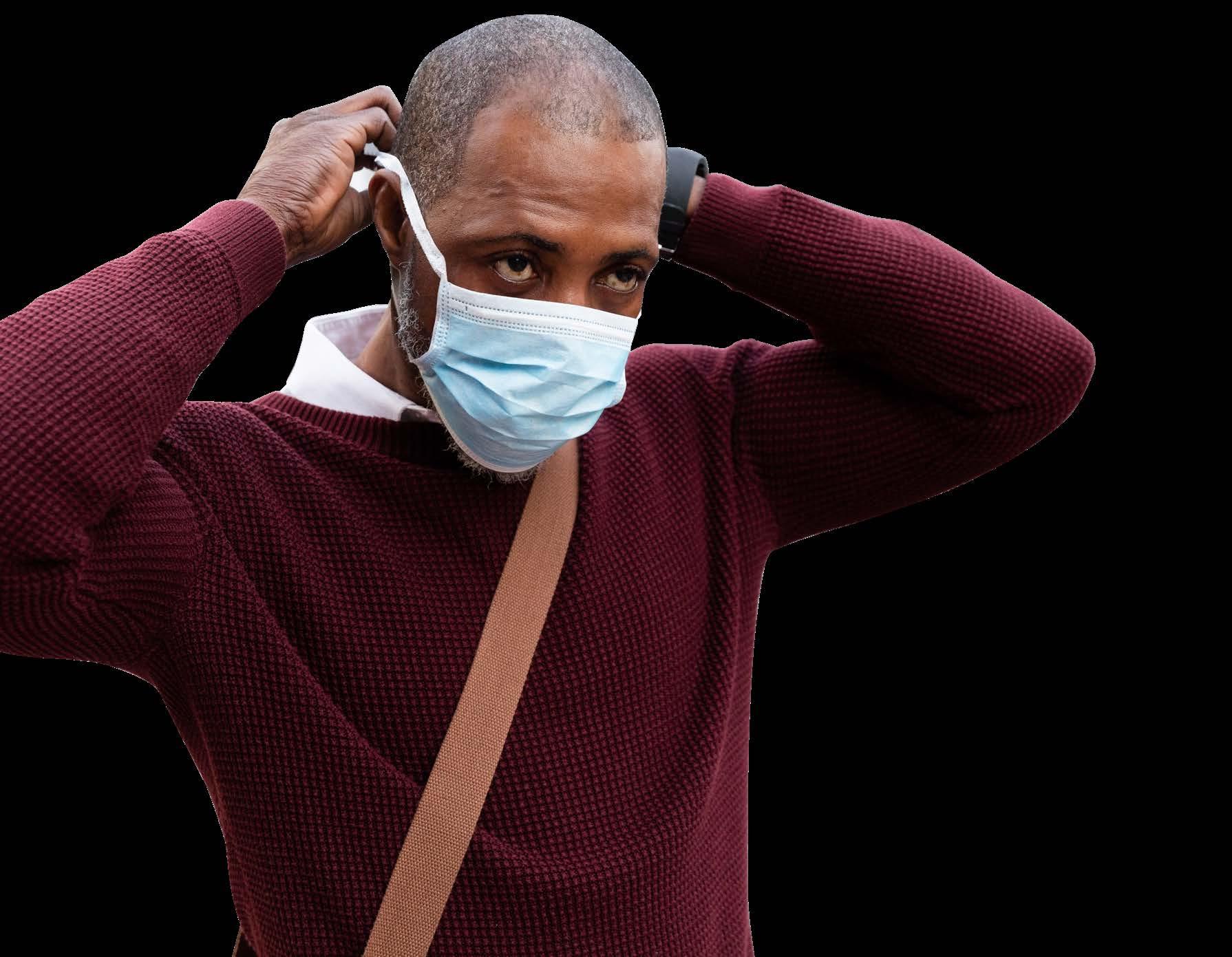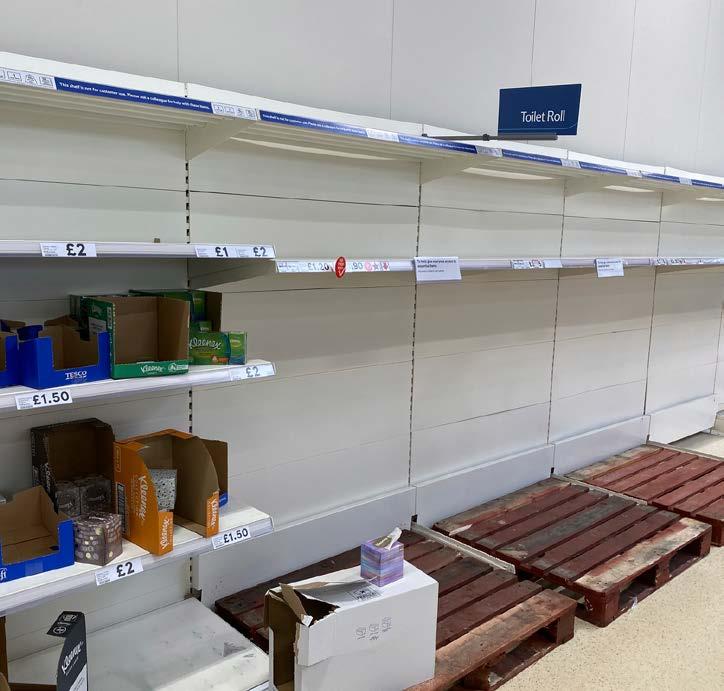
8 minute read
It’s time for faith-driven
Matt Bird is a Global Speaker and Founder & CEO of Cinnamon Network International
Advertisement
www.cinnamonnetwork.com
As the pandemic continues, we need an outbreak of something more powerful than a virus: the spirit of enterprise. It is time for new business enterprises that create value and jobs to replace the hundreds of thousands being lost. We need initiatives that can create social glue, capable of bringing the disparate parts of our lonely and isolated society together.
As a follower of Jesus, my go-to place for inspiration is the Bible, which says: “Remember the Lord your God, for it is He who gives you the ability to produce wealth” (Deuteronomy 8:18). Clearly, wealth creation is a gift of God, not a gift of capitalism.
The word ‘wealth’, which has come to mean financial abundance, derives from the old English word ‘weal’, meaning wellness and well-being. True wealth is not simply the sum of our cash and assets, but is also the relational capital that exists in our families, communities and society. This is the essence of the Hebrew word ‘shalom’, which means peace, harmony, completeness, welfare and prosperity.
God’s gift of wealth creation can unleash untold levels of human flourishing and thriving. The ‘Faith-Driven Entrepreneur’ movement explains: “We believe that business has Godgiven power to transform nations by creating jobs, generating prosperity and catalysing human flourishing” - an entrepreneurship, not driven by motives of selfish ambition and greed, but rather of compassion and a desire to benefit all.
Cinnamon Network International, the charity of which I am founder, has been busier than ever during the pandemic, supporting social entrepreneurs to scale community impact. Our partners in the UK are opening community ‘listening ear’ centres; in South Africa, thousands of face masks are being produced to protect key workers and, in Australia, they are training volunteers to reduce the tragic growth of domestic violence. Cinnamon is supporting these social entrepreneurs to replicate their approaches to save others having to reinvent the wheel.
In the UK, the number of companies formed in the second half of 2020 soared, compared to the same time the previous year. According to the Office for National Statistics, there are more than 13,000 companies being formed every week compared to 11,000 during the same time the previous year.
Whilst high street spending is down, we are seeing the ‘at home’ market grow. At-home medical testing, sports equipment, education platforms, family entertainment, and food and wine experiences are rapidly growing. These market changes are not temporal, so initiating a new enterprise now will build benefits for years to come.
As the old saying goes, ‘Necessity is the mother of invention’, so let’s innovate, launch and grow rather than pause, retreat and retrench. Maybe you have a creative, enterprising or innovative idea, an idea that could be deployed to create wealth and well-being in your community, across our country and around the world?
From my experience in coaching entrepreneurs, the greatest barriers are self-limiting beliefs. We might think that our idea, resources or experience are too small to amount to much. God is in the habit of taking the little we offer Him - such as the boy who offered Jesus five small loaves and two fish to help feed a crowd - and making a lot out of it. On that occasion, the crowd of 5,000 people were fed and there was more to spare.
At other times, the resistance to our idea may come from those we try to get on board in the early stages. It may be an angel investor, strategic partner or board member. Recently, a friend reached out to someone with a powerful idea. They were pushed away with the response that they weren’t taking on anything new until after the pandemic. I can’t help but think that it could be a slightly longer wait than they think!
It’s actually the spirit of innovation, creativity and enterprise that will help pull us through this pandemic. Let’s overcome our feelings of self-doubt and fear of rejection and failure and, instead, dig deep into our reservoirs of determination, hope and compassion.
Now is the perfect time to launch a new venture. There is no shortage of human need and opportunity or the people talent, technology and financial capital required. Let us unleash the spirit of enterprise to create livelihoods and well-being: true wealth and shalom.

This article first appeared in The Times newspaper on Saturday, January 23, 2021
Locked down, but not out
Gary Clayton is a
Copywriter and Editor at Mission Aviation Fellowship
www.maf-uk.org
When lockdown restrictions could once again go to church, I remember a friend saying: “I don’t want to go, because we’ll have to wear facemasks, can’t sing, and will have to leave as soon as the service is over.”
But not so long ago, he’d said how upset he was that the church had been closed because of coronavirus, and he could no longer worship with fellow believers.
For those who haven’t been too adversely affected by COVID-19, and haven’t lost jobs or loved ones, this story does, I think, have something to say to us about accepting things as they are, making the most of what we have, and being grateful.
Perhaps we should also be thankful that things aren’t worse than they currently are, praise God for every positive thing we can find, and try to remain positive despite all the negatives. God, for those who are His, is with us (Romans 8:31-39), and it doesn’t get any better than that!
But the conversation I had with my friend got me thinking about the strange season in which we find ourselves.
The first thing that occurred to me was that, tragic though the situation undoubtedly is, large-scale plagues are nothing new. As Jesus predicts in Luke 21:11, “There will be great earthquakes, famines and pestilences in various places.”
There was the Antonine Plague of 165-180 AD, which killed roughly 5 million people; the Plague of Justinian (541-542), in which 30-50 million Europeans perished, and the Black Death, which, from 1346-1353, was said to have caused about 50 million deaths in Europe.
In 1665, the Great Plague of London caused the loss of 100,000 souls, while the Spanish Flu outbreak of 1918 caused some 50 million fatalities worldwide.
The coronavirus outbreak, which began in 2019, has so far claimed a reported 2,479,678 deaths (World Health Organisation, 24 February 2021) – a number which is significantly lower than the majority of the figures quoted above, all of which occurred in periods where the population was considerably smaller than today.
But this in no way minimises the tremendous suffering caused by the deaths of those who have passed on, or the loss of livelihoods resulting from lockdown. I’m aware too that we have no idea when the pandemic will end, and what the total number of deaths will be when it does.
Only God knows, as we look to Him to end COVID-19 or for an effective vaccine to protect us all from it.
Nick Robinson, writing in The Spectator in March 2020, didn’t get COVID, but said: “This virus may not have infected my body – but it has certainly infected my mind.” It was a time when our WhatsApp messages initially went crazy, and we needed vast doses of equilibriumsaving attempts at humour to see us

through. (Remember the Sound of Music
COVID-19 parody or the
Les Misérables lockdown pastiche on YouTube?) For me, it was a time to contact friends and get to know them better, even though I had to do it through email and WhatsApp, rather than face to face.
It was also a time when I became aware of the need to take each day as it comes. In Matthew 6:11, Jesus prays: “Give us today our daily bread.” Indeed, if nothing else, the initial days of lockdown made us look to God to quite literally provide us with our daily bread – shopping locally feeling a bit like the Israelites going out each day to gather just enough manna for their needs.
I remember one supermarket having toilet rolls but no kitchen roll. “Come back in three days’ time,” they said, “we’ll have run out of loo roll, but the kitchen roll will be in.” Material goods are only transitory – ephemeral – and human life short.
Just waking up each morning and realising that we were still alive, that God’s love remained constant, and we had enough food, drink and loo roll – as well as money to pay for them! – was all we really needed.
The danger posed by coronavirus was therefore a timely reminder – whether we realised it or not – that we rely on God for our every breath. “He gives everyone life and breath and everything else,” says Paul in Acts 17:25, and Job 4:9 reminds us, “At the breath of God they perish; at the blast of His anger they are no more.”
Because God gives us breath, and can take it away in an instant, our lives are in His hands. So we need to make the most of the time we have: serving Christ, sharing the Gospel, helping others and studying God’s Word.
It also means attending church, if we are able, whenever live services resume – my reluctant friend hopefully joining us.

Gary Clayton is married to Julie, the father of Christopher (17) and Emma (14) and works for Mission Aviation Fellowship (MAF). To learn how MAF pilots and personnel brought PPE and coronavirus test kits to people in Africa and the Asia-Pacific region, visit www.maf-uk.org







